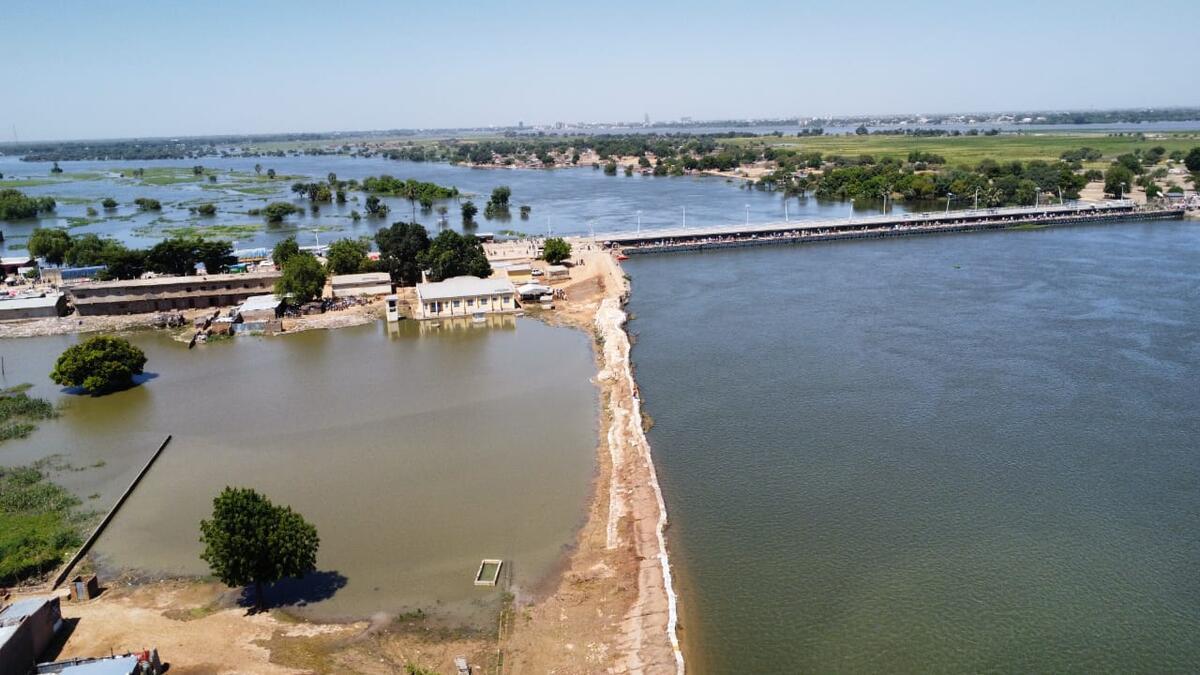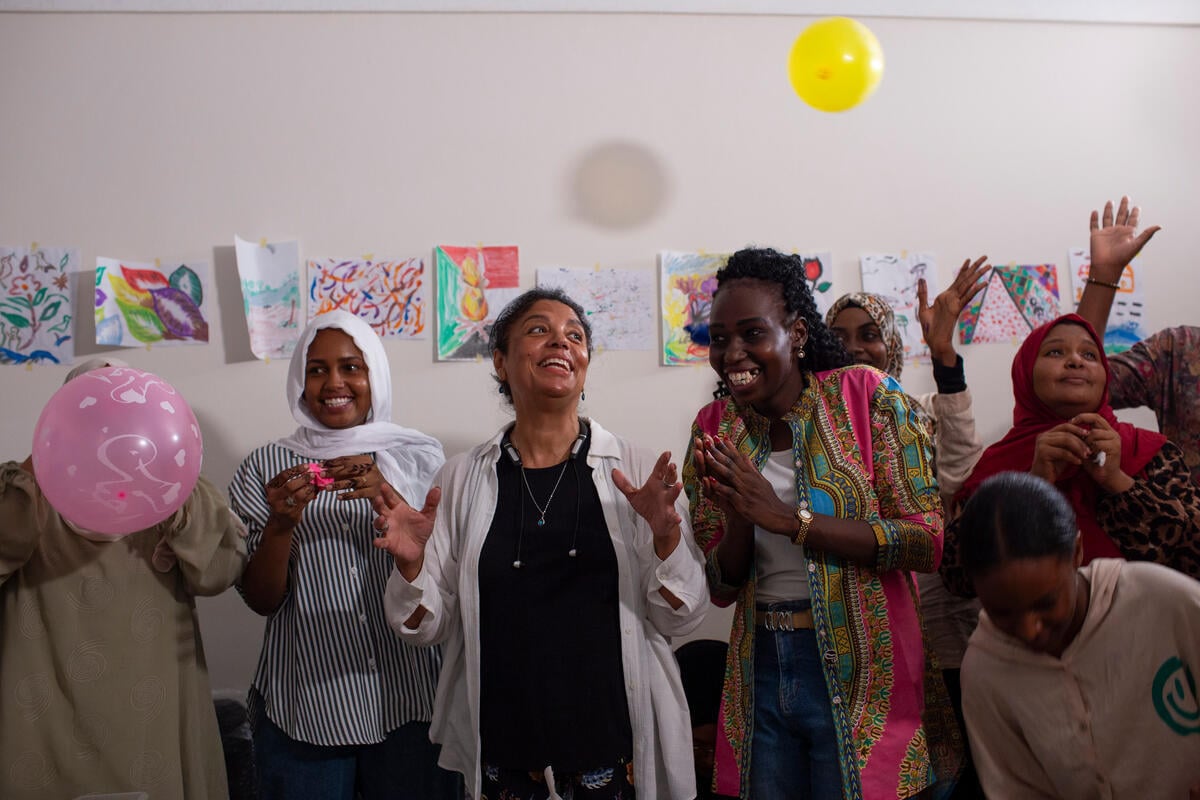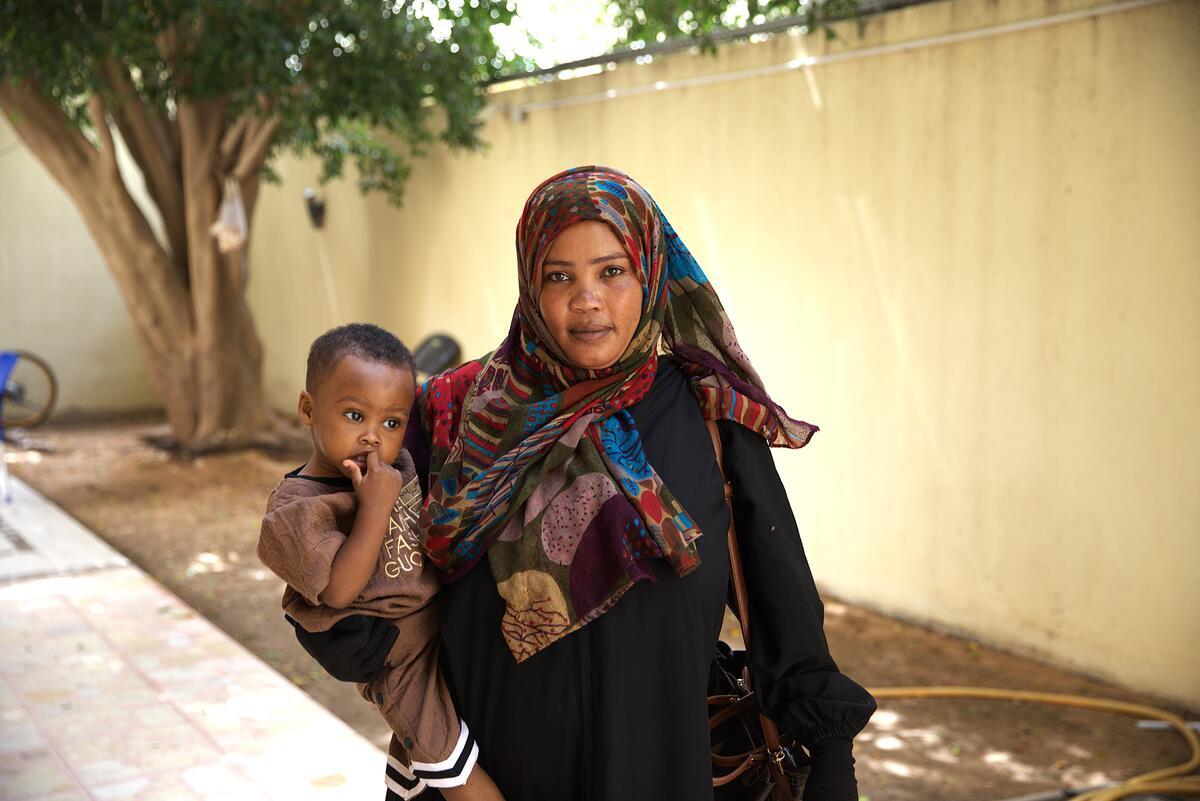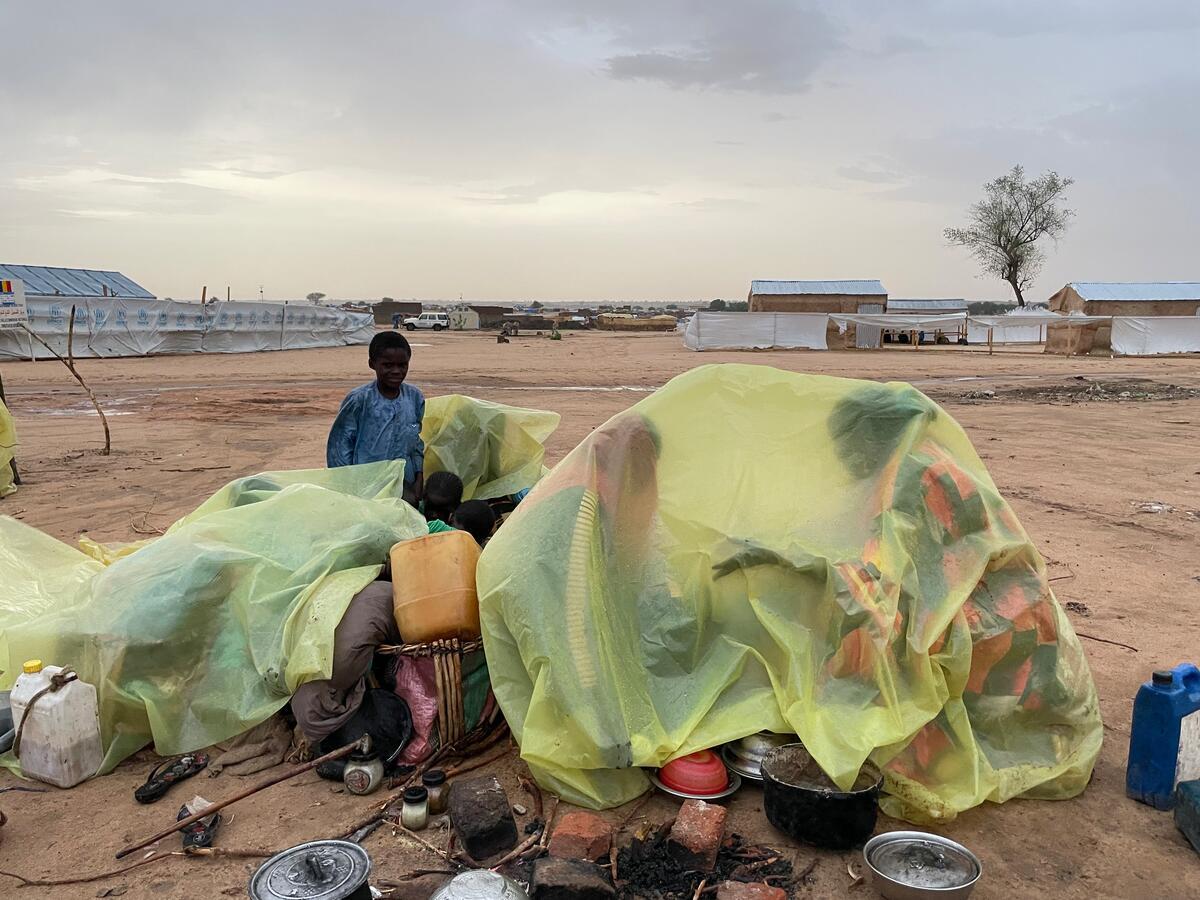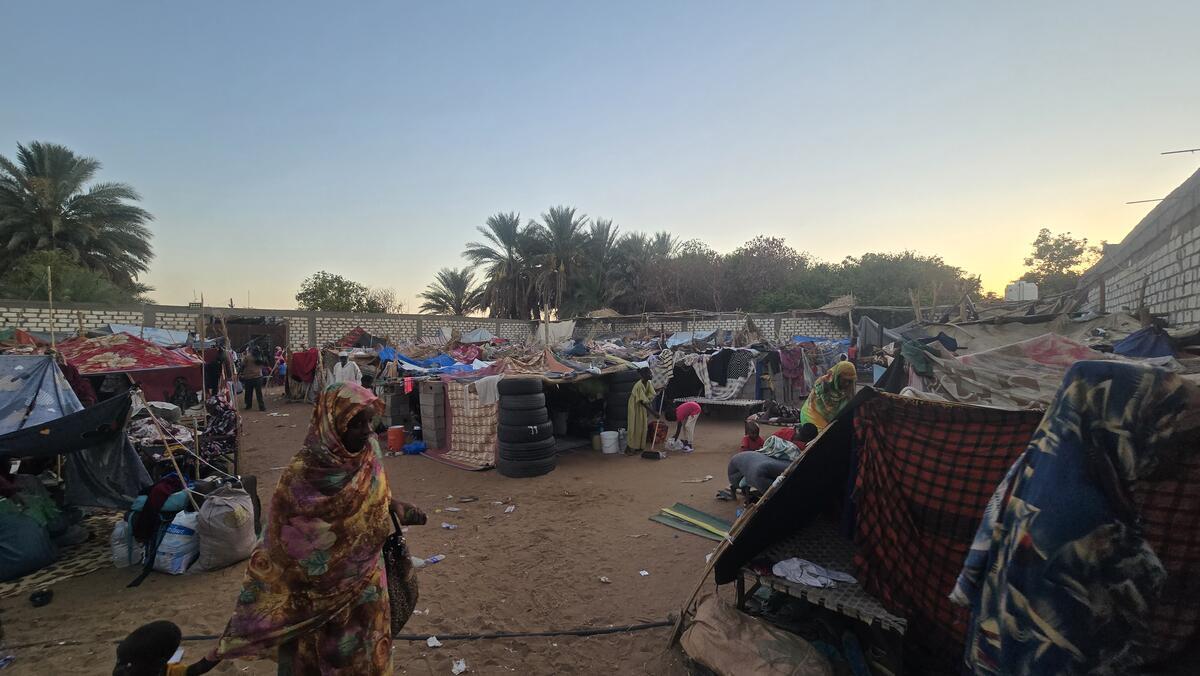UNHCR opens 12th camp in eastern Chad
UNHCR opens 12th camp in eastern Chad

GAGA CAMP, Chad, May 2 (UNHCR) - A first group of Sudanese refugees was moved today to the new Gaga camp, the 12th UNHCR camp in eastern Chad designed to ease congestion in the other camps and to relocate refugees from the border with Sudan.
On Tuesday morning, some 100 refugees left their temporary homes near the Chad-Sudan border on six UNHCR trucks bound for Gaga camp, located near Adré, about 60 km from eastern Chad's main city of Abéché. They had been living near the border for the past few months, initially declining UNHCR's offer to move them to another camp as they preferred to stay at the border in the hope of returning soon to Darfur in western Sudan. Some of them occasionally crossed the border back to Darfur to check on the land, property and animals they had left behind after fleeing attacks by armed militia last year.
Most of the refugees UNHCR staff spoke to stressed that they wanted to move to Gaga camp for security reasons. "We felt exposed to attacks at the border," said Fatoumata Abdullah, who arrived in the camp this morning with her husband and four children. "We do not want to go back to Darfur at this point. This can only happen if there is reconciliation first."
UNHCR expects to relocate between 700 and 1,500 refugees still at the border to Gaga camp. Another 6,500 refugees from Farchana camp and 9,000 from Breidjing camp - both overcrowded camps in the same area - will also be moved to the new camp in the near future.
Gaga can shelter up to 25,000 refugees in total. The camp is being managed by non-governmental organisation Africare, and Oxfam is overseeing water and sanitation. British NGO CORD is involved in education and community services, while MSF Holland will provide health care.
It took months to identify and prepare the site for the new camp. The availability of water to support the refugees was a crucial criterion in an area with scarce water resources. The government and traditional leaders' permission had to be sought before the specialists could start drilling for water, installing pipes and water tanks, and constructing roads and latrines. Space was also allocated for schools, community centres and food distribution centres.
Expectations of the camp are high. "I want my children to be able to go to school," said Fatoumata Isakh, who arrived at Gaga today with her three children. "When we were at the border, our children learnt to read and write with teachers who were themselves refugees. I want them to continue to have education."
Gaga camp's first residents are joining more than 200,000 Sudanese refugees who have been transferred to UNHCR camps in eastern Chad since the first one - Farchana - opened in January 2004.
By Ginette Le Breton in Gaga camp, Chad

